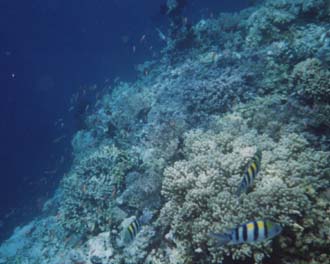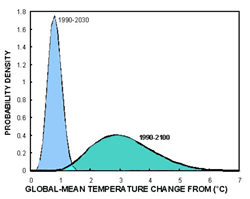Click on image for full size
Courtesy of Lisa Gardiner
Related links:
Hope for the World’s Coral Reefs?
News story originally written on December 20, 2002
After many years of damage, scientists report that coral reefs in several parts of the world have started to recover during 2002!
Each year a team of scientists who study coral reefs gives their assessment of how the threatened ecosystems are doing in a book called The Status Of The Coral Reefs Of The World. Finally, they have some good news to report!
The reefs with improving health are located in areas that are protected from activities that may damage them, such as over-fishing, pollution, and sedimentation. Over-fishing is dangerous for coral reefs because it disrupts the balance between organisms within the ecosystem. Pollution can weaken or kill living things in a reef. Sedimentation, sand falling on top of the reefs, is harmful because it will clog the coral animals, preventing them from feeding.
Unfortunately, not all reefs have improving health. Many reefs around the world continue to suffer. According to the report, 27% of the world’s reefs have been lost and another 14% are expected to be destroyed in the next 10 to 20 years. These coral reefs may suffer because of local threats, like too much fishing or pollution in the ocean water, but they are also threatened by global climate change the main cause of coral bleaching.
More than 400 coral reefs were bleached during the year 2002. Bleaching is a process that turns coral white when the algae that live within the coral’s body are released out into the ocean water. A reef that has bleached is not dead but the corals are very weak without the algae in their bodies. Corals will bleach if the seawater is too warm or not salty enough, when there is too much sunlight or too many toxins.
“I am heartened by the recovery but apprehensive for the future,” said Dr. Clive Wilkinson, a marine scientist from Australia who is the author of the report.















